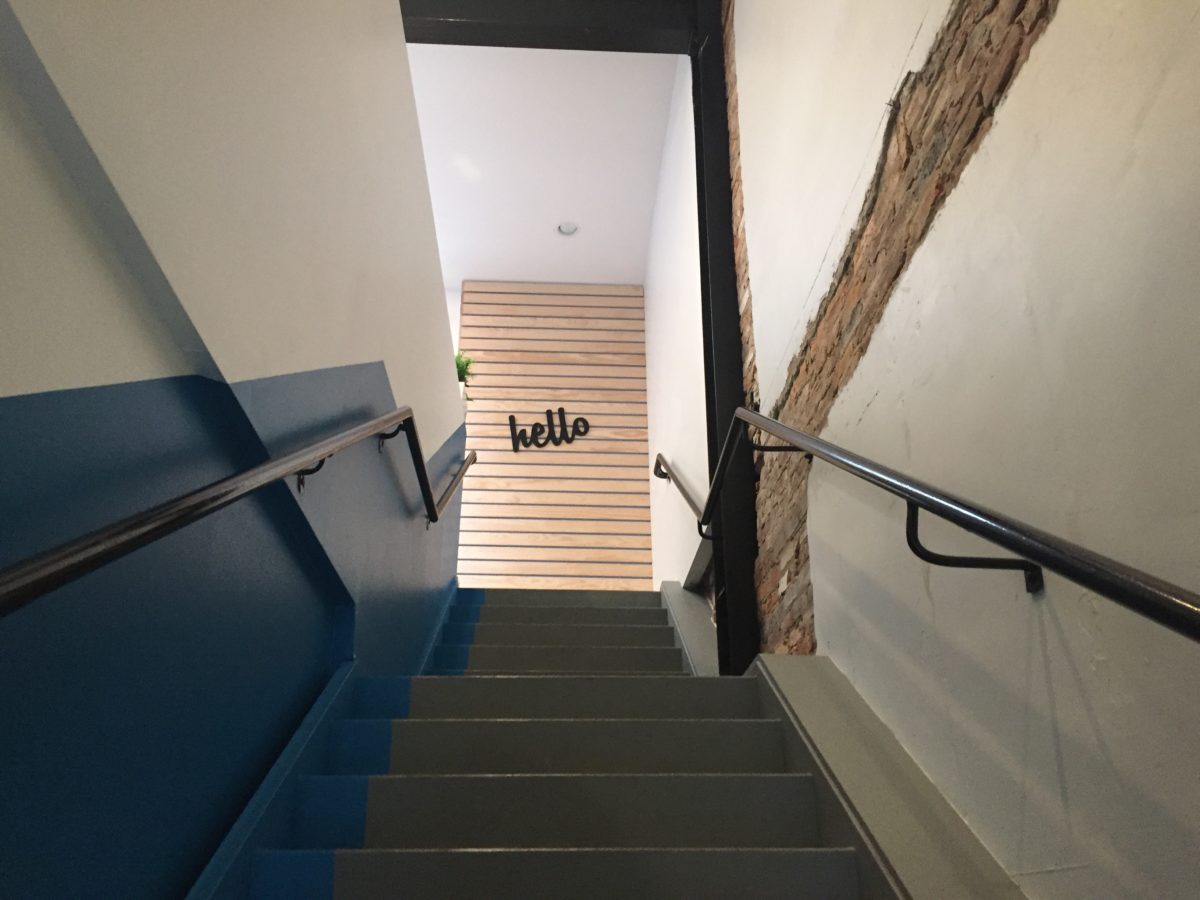When cove first launched about three years ago, the “neighborhood workspace” had a pretty specific vibe. It was, as city manager Robby Goldsberry put it, “somewhere between a library and a coffeeshop, but probably closer to a library.”
That is to say quiet. Very quiet.
And the membership valued this, Goldsberry told Technical.ly in a recent interview. Overall, the type of people who showed up at a cove location liked a quiet workspace, and that set cove apart from its competition.
The problem, though, was that this quiet limited the types of people who could work at cove. Want to take a phone call in the main coworking area? Probably not at cove. So the team asked itself — how can we make this work environment more inclusive?
Summer 2015 was a summer of expansion for cove; Summer 2016 was one of “reinvestment” in the company’s six D.C. locations (it was also the summer cove closed two of those expansion locations in Boston, as DC Inno reported here). So when the company relaunched its 14th Street location in September, it was also debuting a new model — a more inclusive model.
Essentially, instead of having one big room, cove locations around D.C. are now divided in some way (by rooms or by level, depending on the location). That way one room can be dedicated to “social” coworking (Talk to your neighbor! Take a quick call! Go crazy!), while the other is dedicated to “focus space” (Enjoy these OG library vibes). Realizing that a lot of members are remote workers who need to be on the phone or video chat for significant portions of the day, cove has also increased the number of call boxes available at its locations.
One thing cove didn’t change during the summer of reinvestment? The pricing model.
Despite the fact that ClassPass recently announced it can’t make a flat-fee, unlimited plan work, cove is persevering with a $125/month all-access pass. The reason the company is able to do this, Goldsberry told Technical.ly, is because the company initially had a per hour pricing model that allowed them to collect a bunch of valuable data on users’ habits and price the all-access pass accordingly.
Could users habits change? One has to imagine they can. But that’ll be a story for another day.
Before you go...
Please consider supporting Technical.ly to keep our independent journalism strong. Unlike most business-focused media outlets, we don’t have a paywall. Instead, we count on your personal and organizational support.
Join our growing Slack community
Join 5,000 tech professionals and entrepreneurs in our community Slack today!

Entrepreneurship is changing, and so is the economic development behind it

Tech Hubs’ new $210M funding leaves Baltimore and Philly off the table

Here’s what to know before using AI to craft your brand’s social media posts

